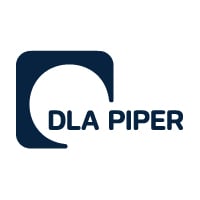

General counsel | Alliance Healthcare Spain




Azucena González Olivera
General counsel | Alliance Healthcare Spain
Team Size: Five
How do you manage legal aspects during periods of instability or crisis, and how do you align your legal strategy with the overall business strategy to ensure the organization’s resilience?
During periods of instability or crisis, the general counsel plays a critical and strategic role in guiding and advising the company through uncertainty while ensuring that business decisions align with applicable regulations and long-term sustainability principles. To manage legal aspects during these times, I adopt a proactive and strategic approach, with a focus on communication and transparency.
It’s crucial to continuously monitor the legal and regulatory environment, not only complying with existing laws but also anticipating new regulations, especially in areas such as data protection, new technologies, sustainability, and labor rights. My priority is to ensure the organisation adheres to the law while navigating through the crisis, minimizing potential legal risks.
We build strong partnerships with senior management and key departments to ensure strategic decisions, such as operational adjustments or new business approaches, align with legal frameworks and compliance best practices.
In times of crisis, my approach is to identify and evaluate emerging risks and develop mitigation strategies, including contract reviews, analyzing the situation, and planning contingencies to protect the company from potential negative legal consequences.
Crises often lead to rapid changes in how the company operates, so legal strategies must be flexible and adapt quickly to new circumstances. I strive to reassure teams and make swift, informed decisions that minimize legal impacts.
Crisis situations can also affect the company’s reputation, so managing internal and external communication strategically is essential. I collaborate closely with the communications team to ensure information shared is accurate, transparent, and protects the organization’s interests.
Although the company must act quickly and make short-term decisions during a crisis, the legal strategy must always align with the company’s long-term vision. It’s important that decisions made during a crisis don’t compromise the company’s values, sustainability, or long-term objectives. Even in challenging times, I focus on identifying growth opportunities and using the legal framework to explore new business opportunities.
In summary, the role of the general counsel is to lead risk management, ensure legal compliance, and collaborate with leadership to make informed decisions. A proactive, flexible legal strategy aligned with business objectives is key to ensuring the organisation’s resilience and enabling it to emerge stronger from a crisis.
What are the main cases or transactions you have been involved in recently?
As Legal Director at Alliance Healthcare España, I have led and coordinated several strategic projects that showcase my innovative approach to legal management. One of the most notable projects was the implementation of new data protection processes and secure IT platforms. This project is critical for strengthening compliance with data protection and cybersecurity regulations in an environment of increasing threats and stricter regulations.
I led this change alongside global teams, focusing on improving internal processes related to information management. My oversight included implementing advanced, secure IT platforms that not only transformed our data management processes but also enhanced the security and protection of sensitive data. This approach significantly strengthened our compliance capabilities, which is essential for maintaining trust with clients, employees, and business partners.
Another key project involved coordinating the creation of a new business area. This initiative included forming new teams, implementing new working models, and ensuring that all legal aspects aligned with the company’s strategic objectives. Despite the complexities of setting up a new business area in a dynamic regulatory environment, it was incredibly rewarding to see cross-functional teams collaborate effectively to achieve a common goal.
These projects reflect my commitment to excellence in compliance and sustainable value creation for the organization. They demonstrate how legal leadership plays a crucial role in the resilience and strategic growth of a company.
What do you consider to be the main legal challenges for businesses in Spain over the next five years, and how are you preparing to address them?
The next five years will bring several important legal challenges for businesses in Spain, especially in a constantly changing global environment.
One of the major challenges will be regulatory compliance in sustainability and corporate social responsibility (CSR). Growing regulatory pressure surrounding sustainability, human rights, climate change, and business transparency will be a significant challenge. European legislation is already setting the pace with stricter regulations on non-financial disclosures, sustainability, and environmental impact. Companies will need to adapt to these more demanding regulations and demonstrate real commitment to sustainability.
Data protection and cybersecurity will also be an increasing challenge as businesses digitize their operations. With the GDPR in effect, companies must stay up to date with privacy requirements, while evolving cyber threats demand new protection strategies.
The digital transformation and technological regulation will present another challenge. The adoption of new technologies, such as AI, blockchain, and automation, will bring legal challenges related to intellectual property, liability, privacy, and ethics. Companies will need to navigate this evolving legal landscape to ensure compliance and minimize risks.
Labor law changes will also be crucial. With rapid changes in the labor market, including remote work, flexible work arrangements, and new forms of employment, companies will need to manage labor relations efficiently and comply with ever-changing labor laws.
Lastly, risk management and ethical compliance are becoming key focuses. Organizational culture, driven by ethics and integrity, is under greater scrutiny, and companies must ensure that internal policies and codes of conduct align with ethical standards and societal expectations.
To address these challenges, I am strengthening compliance through internal policies and programs aligned with new regulations, particularly in governance, sustainability, cybersecurity, and data privacy. Continuous team training and process reviews are part of this effort.
I promote a culture of ethical leadership, ensuring that the company’s values align with regulatory changes and societal expectations. Collaboration with other departments, such as IT, HR, marketing, and operations, is vital to adapting quickly to legal and technological changes. I also work closely with the Executive Committee to integrate legal challenges into the company’s overall strategy. Lastly, I stay updated on trends and regulations by participating in specialized forums and courses, maintaining a network of experts to stay informed on the latest legislative developments.
In summary, the coming years will be marked by increased regulatory complexity and the need to adapt to new technologies and ethical approaches.